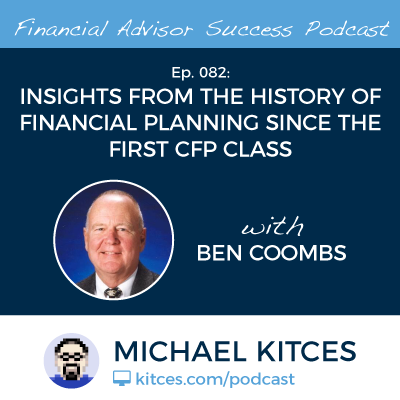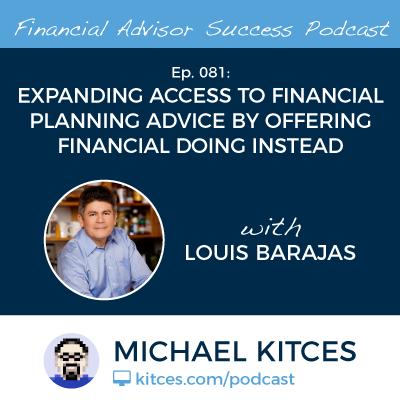As advisory firms seek to refine their fee structures and find ways to add value for (and generate new revenue from) their existing clients, one of the more interesting shifts in the industry over the past couple years has been away from billing on assets under management and towards assets under advisement, which are those outside held-away assets (e.g., a 401(k) plan at a current employer) on which an advisor may make recommendations, but not necessarily effect any transactions (because it’s not under their direct management). The appeal of such an approach is understandable: qualified plans are an ever-increasing piece of clients’ nest egg, especially for those in their 30s, 40s, and 50s, and the dilemma advisors often face is that, while a potential client might have significant net worth, much of that is tied up in accounts that the advisor can’t manage directly.
In this week’s #OfficeHours with @MichaelKitces, my Tuesday 1PM EST broadcast via Periscope, we discuss the ways in which advisors are working with clients with substantial held-away assets, the issues they may face when charging an assets-under-advisement (AUA) fee on outside assets, and some operational challenges that advisors need to think about before adding on this type of fee structure.
The quintessential example of a client where an AUA fee may be a better fit than an AUM fee is the still-working client with a moderate (e.g., $150,000) brokerage account, and a sizable (e.g., $350,000) 401(k) plan at a current employer, where the client can afford to pay the advisor a reasonable fee in the aggregate, but not necessarily “just” from the account that’s available to manage.
There are a few ways to handle situations like this. In some cases, the advisor simples takes the client on in hopes of getting that sizable roll-over down the road (even if it’s an unprofitable client for years up until that point). Others may set a minimum annual fee for clients if their available assets fall under a certain threshold, ensuring that there is a sufficient level of revenue per client to service the client, and letting those with sufficient net worth (even if not all available to manage) to decide for themselves whether to move assets, or just pay the fee.
The third approach that’s emerging, though, is simply to not charge only on the assets that the advisor manages directly, but also setting an assets under advisement fee for those outside held-away assets that might provide advice on, even if the advisor doesn’t (or can’t) have discretionary authority. For which the AUA fee is typically lower, recognizing that while the advisor does provide some services, it is less than the full-service management (for the full-service management fee) on the actual managed accounts.
However, charging an AUA fee it’s not without its potential pitfalls. In some cases, clients may not want to pay for “just” asset allocation advice they have to implement themselves. And if an advisor gets the client’s login credentials to do it for them, the service is a lot less cost efficient due to the added layers on manual work involved, and means that the advisor has custody of those assets (and as such, is subject to an annual surprise custody audit under the SEC custody rule). Moreover, if the client gets accustomed to paying a lower fee to have the outside 401(k) “advised upon”, they may not want to roll over and pay a full management fee when the time comes (if the advisor has not effectively distinguished the value). Which can be especially challenging for advisors with a more passive approach, since at least active managers can claim there is additional value in rolling over by being able to implement full investment management process (e.g., offering “tactical management of retirement assets to minimize sequence of returns risk”).
Beyond those challenges, advisors also need to figure out how they’re actually going to bill on those held-away assets. As since advisors generally can’t deduct fees directly from a 401(k) account, they will either have to bill from managed accounts they do oversee (which is bad news for the advisor’s performance numbers, since the fees for the entire pie and coming from just the advisor’s slice), or send the client an invoice and implement technology to bill them directly.
These challenges to adopting an AUA fee aren’t insurmountable, however, but do require some careful thought and planning in advance. As ultimately, charging a fee on assets under advisement may be a good way for certain advisors to expand their relationship with existing clients, especially those who are still in their working years and have a sizable 401(k) plan that is unavailable to be managed directly. However, the AUA fee has got to make sense from a business perspective as well, which means having a clear operational game plan for calculating fees, dealing with all the extra manual work, and for navigating the regulatory minefield.




